Mountain Marigold Care – How To Grow Bush Marigold Plants
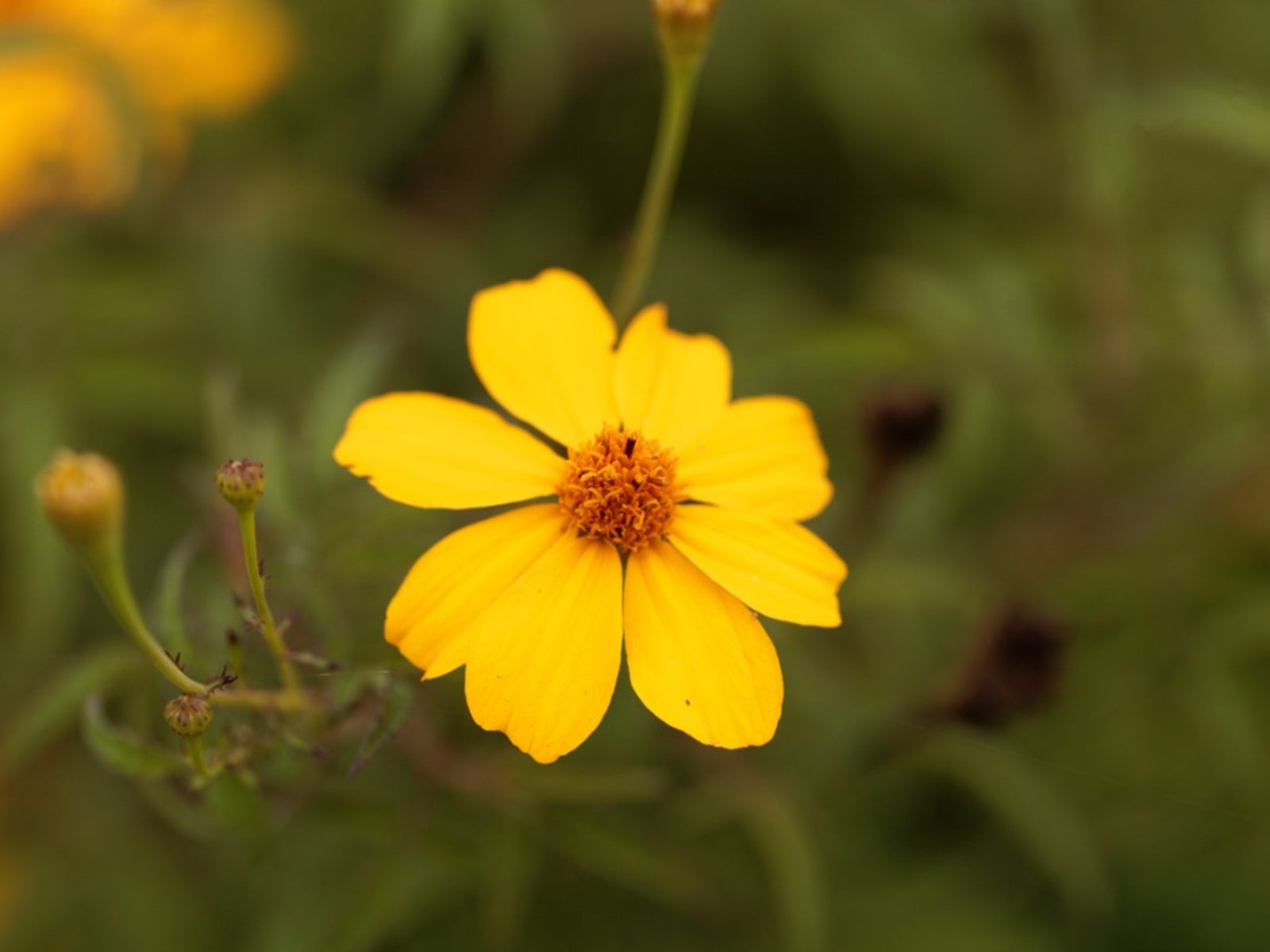
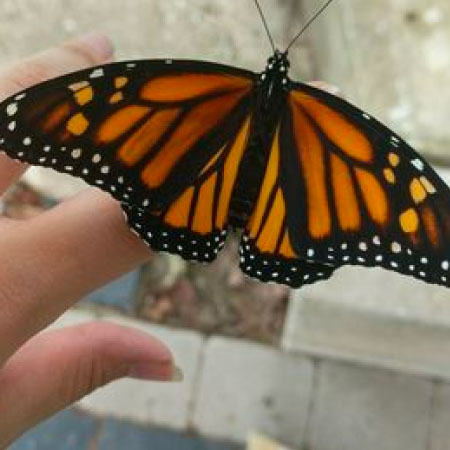
From August through November, hillsides near the Sonoran Desert in North America may look like they are covered in blankets of yellow. This beautiful annual scene is caused by the bloom period of Mountain Lemmon marigolds (Tagetes lemmonii), which may also bloom sporadically in spring and summer, but save their best display for autumn. Click on this article to read more about mountain marigold plants.
About Mountain Marigold Plants
We’re commonly asked, “what is bush marigold?” and the fact is the plant goes by many names. Also commonly known as Copper Canyon daisy, Mountain Lemmon marigold, and Mexican bush marigold, these plants are native to the Sonoran Desert and grow wildly from Arizona down into Northern Mexico. They are upright, evergreen to semi-evergreen shrubs which can grow 3 to 6 feet (1-2 m.) tall and wide. They are true marigold plants, and their foliage is described as heavily scented like marigold with a hint of citrus and mint. Due to their light citrus scent, in some regions they are known as tangerine scented marigolds. Mountain marigolds bear bright yellow, daisy-like flowers. These blooms may appear all year in some locations. However, in autumn the plants produce so many blooms that the foliage becomes barely visible. In the landscape or garden, the plants are oftentimes pinched or cut back in late spring to early summer as part of mountain marigold care to produce fuller plants that will become covered in blooms during late summer and fall.
How to Grow Bush Marigold Plants
If you live in an area where these plants are common, then growing mountain marigolds should be easy enough. Mountain bush marigolds can grow well in poor soil. They are also drought and heat tolerant, although the blooms may last longer with a little protection from the afternoon sun. Mountain marigolds will become leggy from too much shade or overwatering. They are excellent additions to xeriscape beds. Unlike other marigolds, mountain marigolds are extremely resistant to spider mites. They are also deer resistant and seldom bothered by rabbits.
Gardening tips, videos, info and more delivered right to your inbox!
Sign up for the Gardening Know How newsletter today and receive a free copy of our e-book "How to Grow Delicious Tomatoes".
-
 Looking For Plants To Give You The Soft And Fuzzies? Try These 5 Fuzzy Leaf Plant Options
Looking For Plants To Give You The Soft And Fuzzies? Try These 5 Fuzzy Leaf Plant OptionsLovers of texture, drama, silver foliage and tactile plants will adore these special sensory garden additions. These fuzzy leaf plant options will leave you all aglow
By Susan Albert
-
 Get Ready For A Summer Of Hummers! Grow These Full Sun Hummingbird Plants and Flowers
Get Ready For A Summer Of Hummers! Grow These Full Sun Hummingbird Plants and FlowersIf you’re lucky enough to enjoy a sunny backyard, make sure you are maxing out on your pollinator opportunities and grow these full sun hummingbird plants and flowers
By Tonya Barnett
-
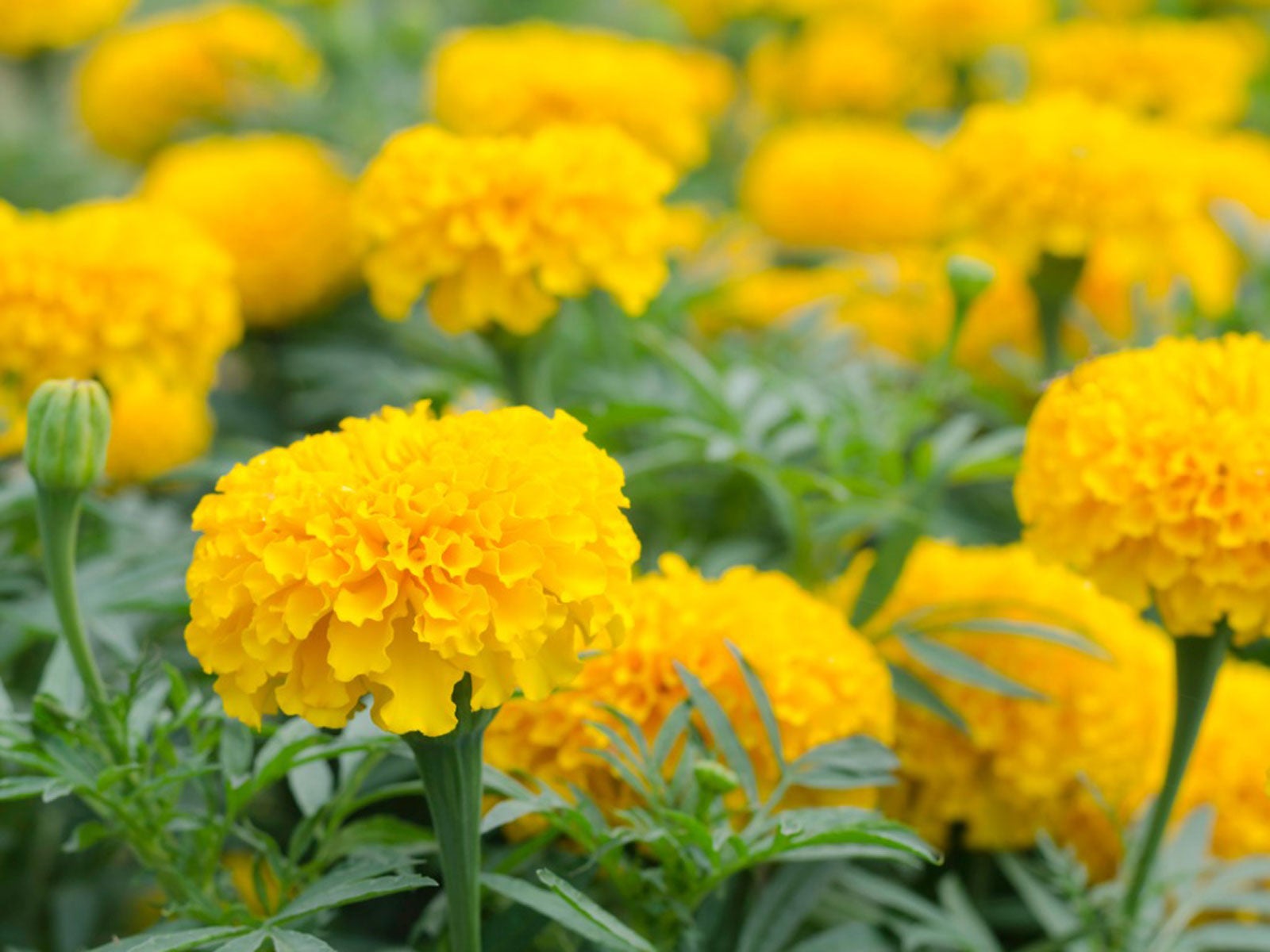 Marigold Flower Uses: Marigold Benefits For Gardens And Beyond
Marigold Flower Uses: Marigold Benefits For Gardens And BeyondMarigolds are appreciated primarily for their beauty, and you may not have considered the many surprising marigold benefits for gardens. Click on the following article to learn about ways to use marigold plants in the garden.
By Mary H. Dyer
-
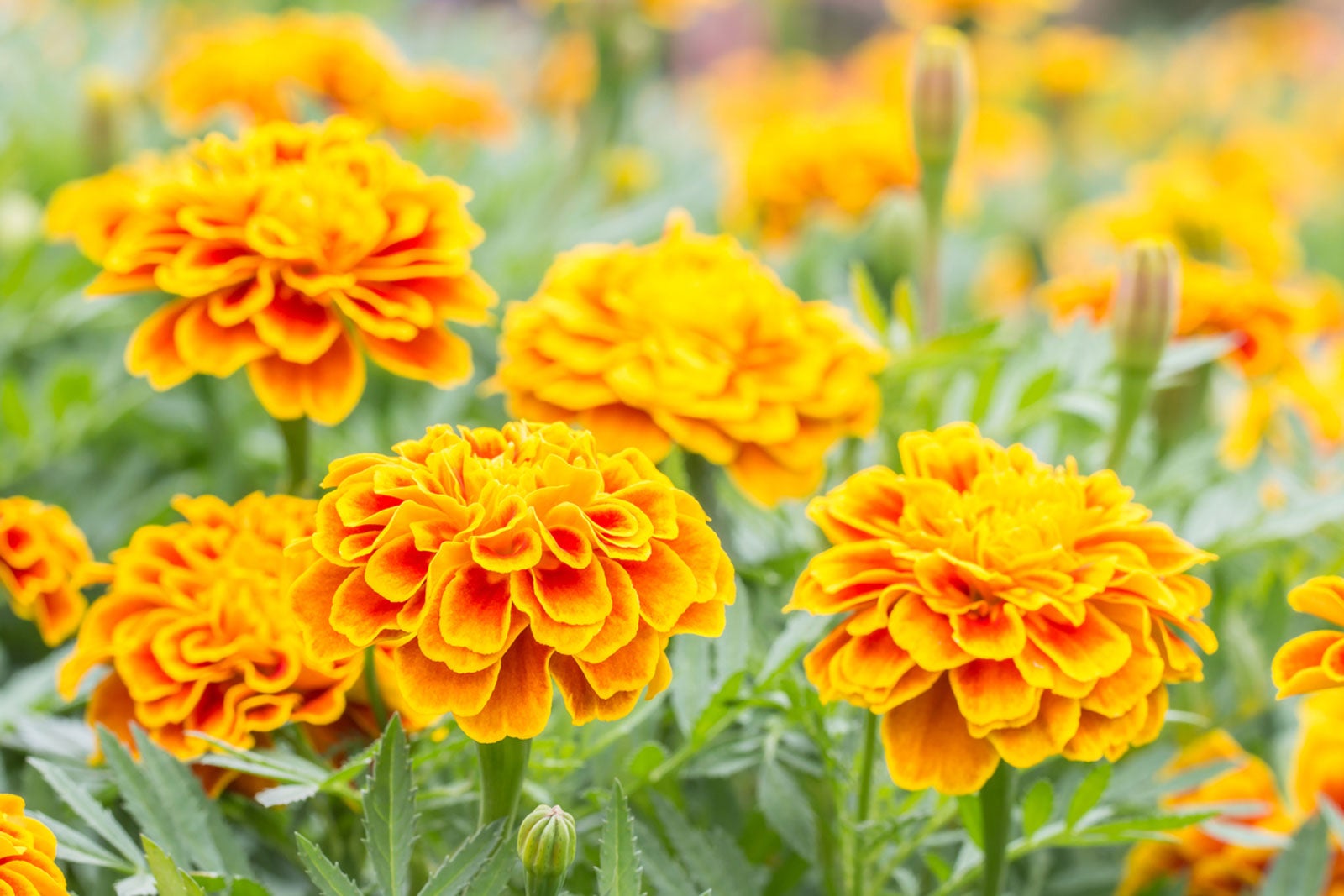 Marigold Vs. Calendula – Difference Between Marigolds And Calendulas
Marigold Vs. Calendula – Difference Between Marigolds And CalendulasIt’s a common question: Are marigold and calendula the same? The simple answer is no. Although both are members of the sunflower family, marigolds and calendula are plants with different genera. Why all the confusion? Find out in this article and how to tell them apart.
By Mary H. Dyer
-
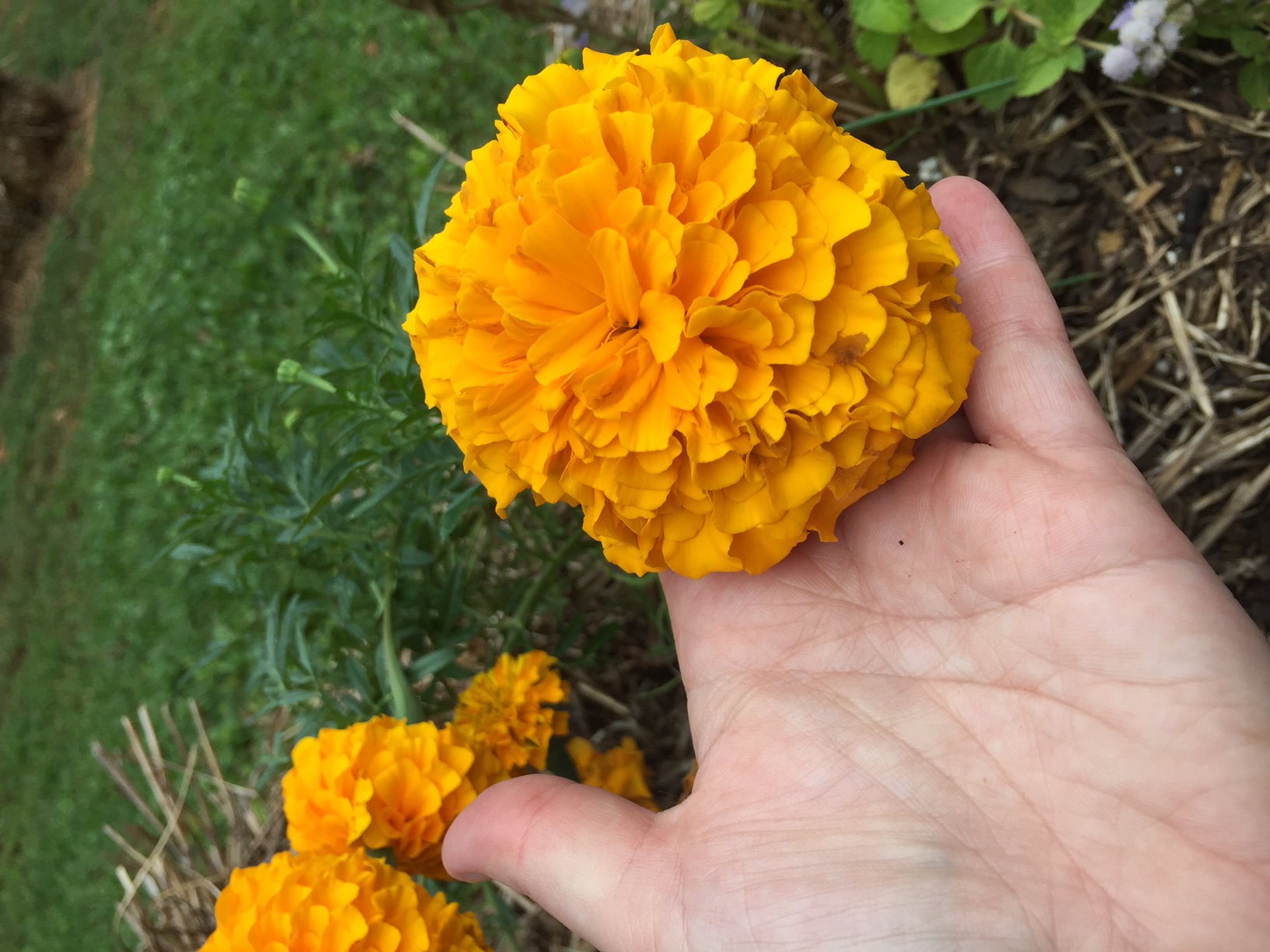 African Marigold Care: How To Grow African Marigolds
African Marigold Care: How To Grow African MarigoldsAfrican marigolds were sacred to the Aztecs, who used them as a medicine and as a ceremonial offering to the sun gods. Marigolds are still called the herb of the sun because of this. Click this article for more African marigold information.
By Darcy Larum
-
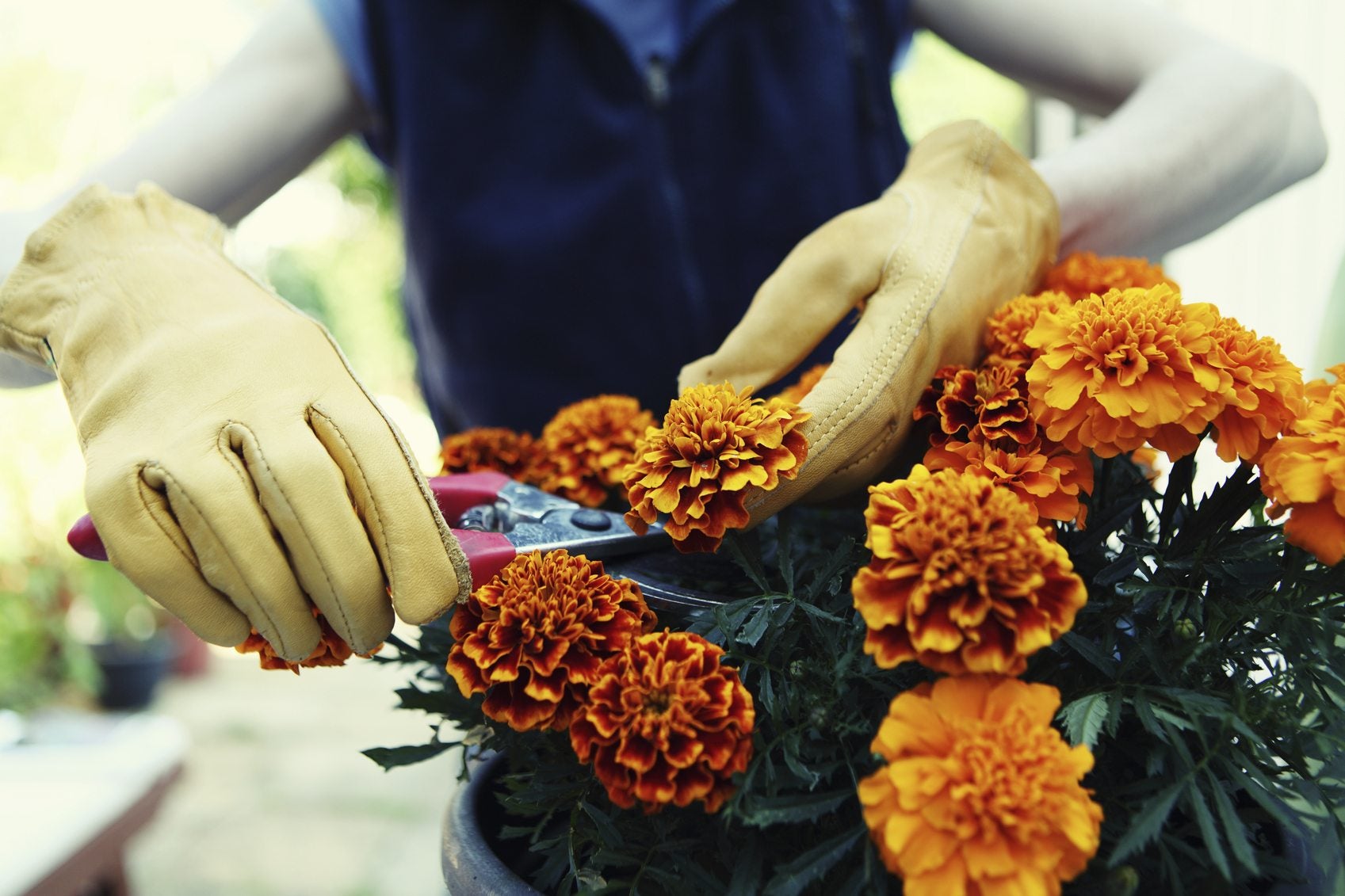 Deadheading Marigold Plants: When To Deadhead Marigolds To Prolong Blooming
Deadheading Marigold Plants: When To Deadhead Marigolds To Prolong BloomingShould you start removing spent marigold flowers? Marigold deadheading does help keep the garden looking its best and encourages new blooms. Click on this article for more information about deadheading marigold plants.
By Teo Spengler
-
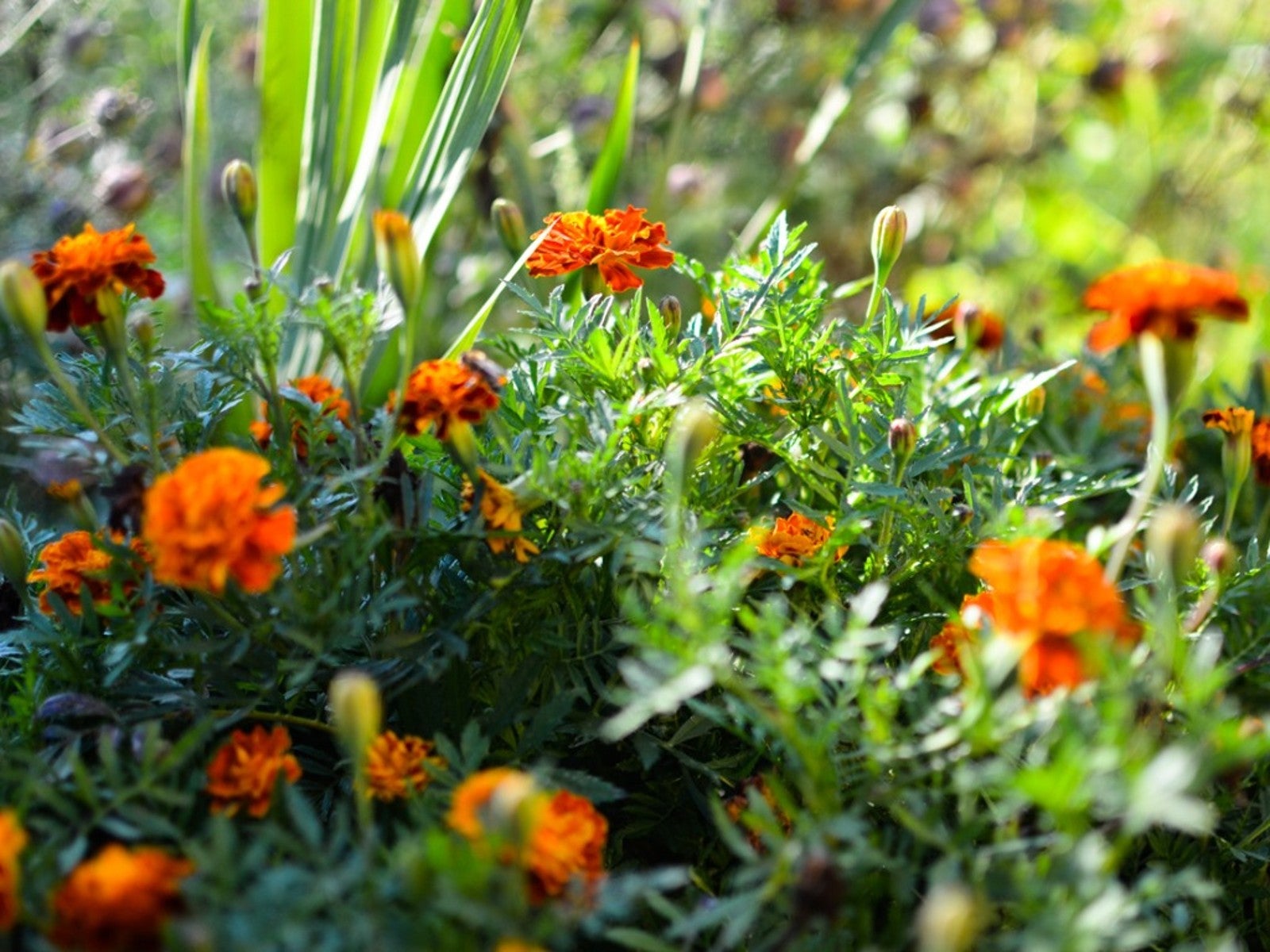 Marigold Leaf Problems: Treating Marigolds With Yellow Leaves
Marigold Leaf Problems: Treating Marigolds With Yellow LeavesMarigold blossoms are a bright, sunny yellow, but the foliage below the flowers is supposed to be green. If your marigold leaves are turning yellow, you've got marigold leaf problems. To learn what might be causing yellowing marigold leaves, click here.
By Teo Spengler
-
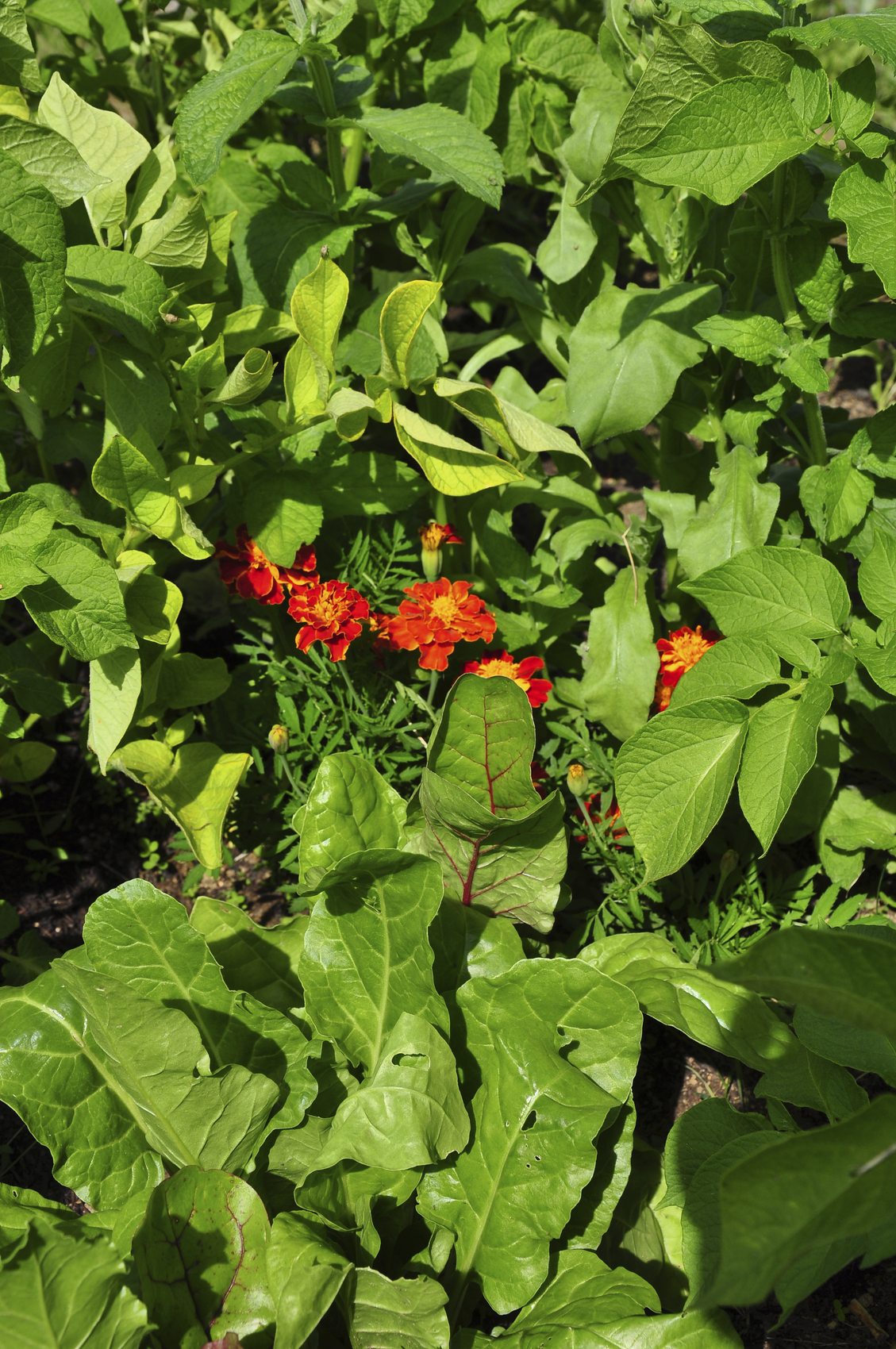 Using Marigolds Around Plants – Do Marigolds Keep Bugs Away
Using Marigolds Around Plants – Do Marigolds Keep Bugs AwayDo marigolds keep bugs away? The best way to find out is to experiment in your own garden, and you really can't go wrong. There's no doubt they attract a variety of beneficial insects that prey on bad bugs. Learn more about marigold plants and pests here.
By Mary H. Dyer
-
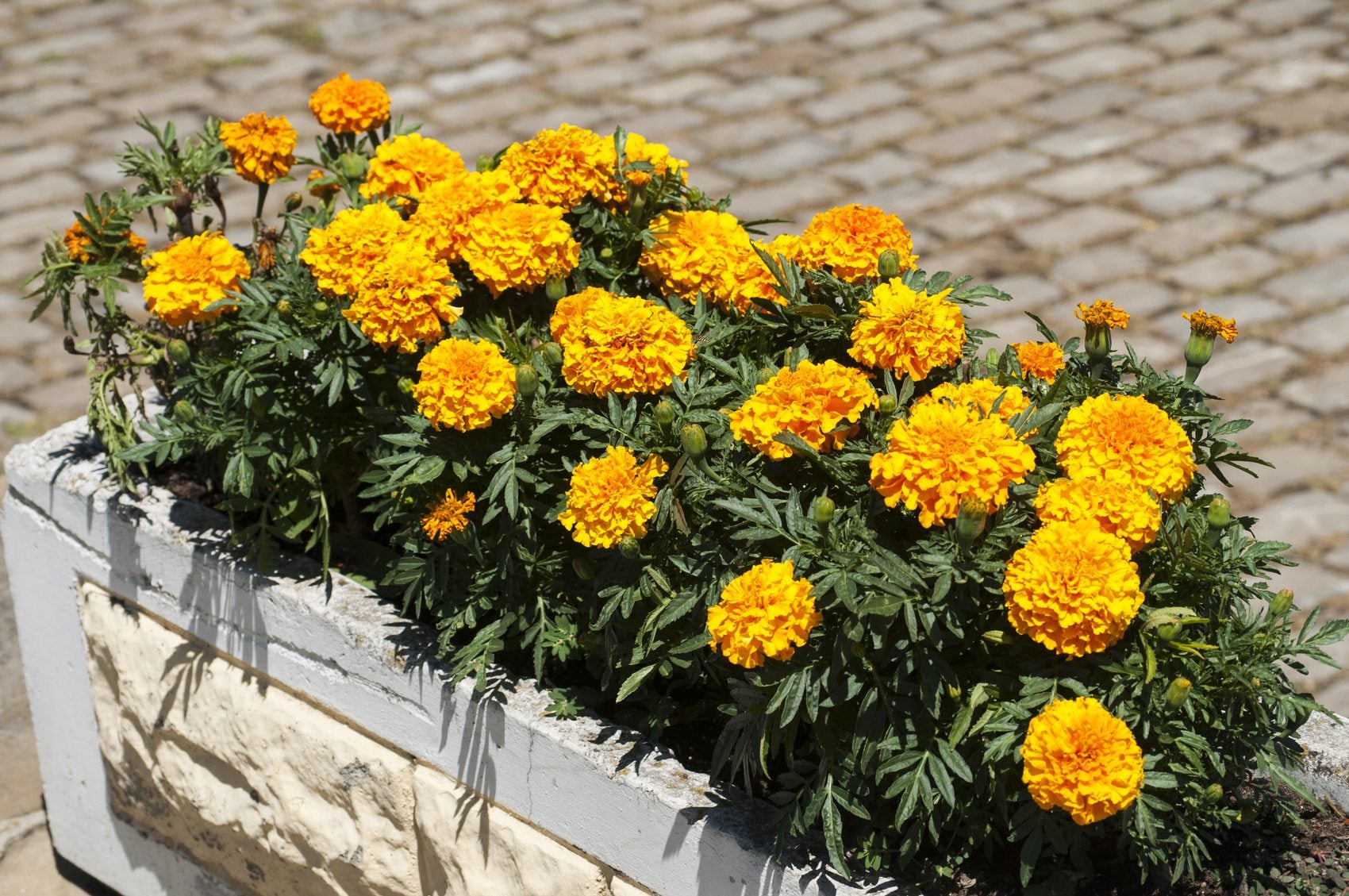 Caring For Marigolds In Pots – Tips On Growing Marigolds In Containers
Caring For Marigolds In Pots – Tips On Growing Marigolds In ContainersMarigolds are easygoing plants that bloom reliably, even in direct sunlight, punishing heat and poor to average soil. Although they are beautiful in the ground, growing marigolds in containers is a surefire way to enjoy this delightful plant. Learn more here.
By Mary H. Dyer
-
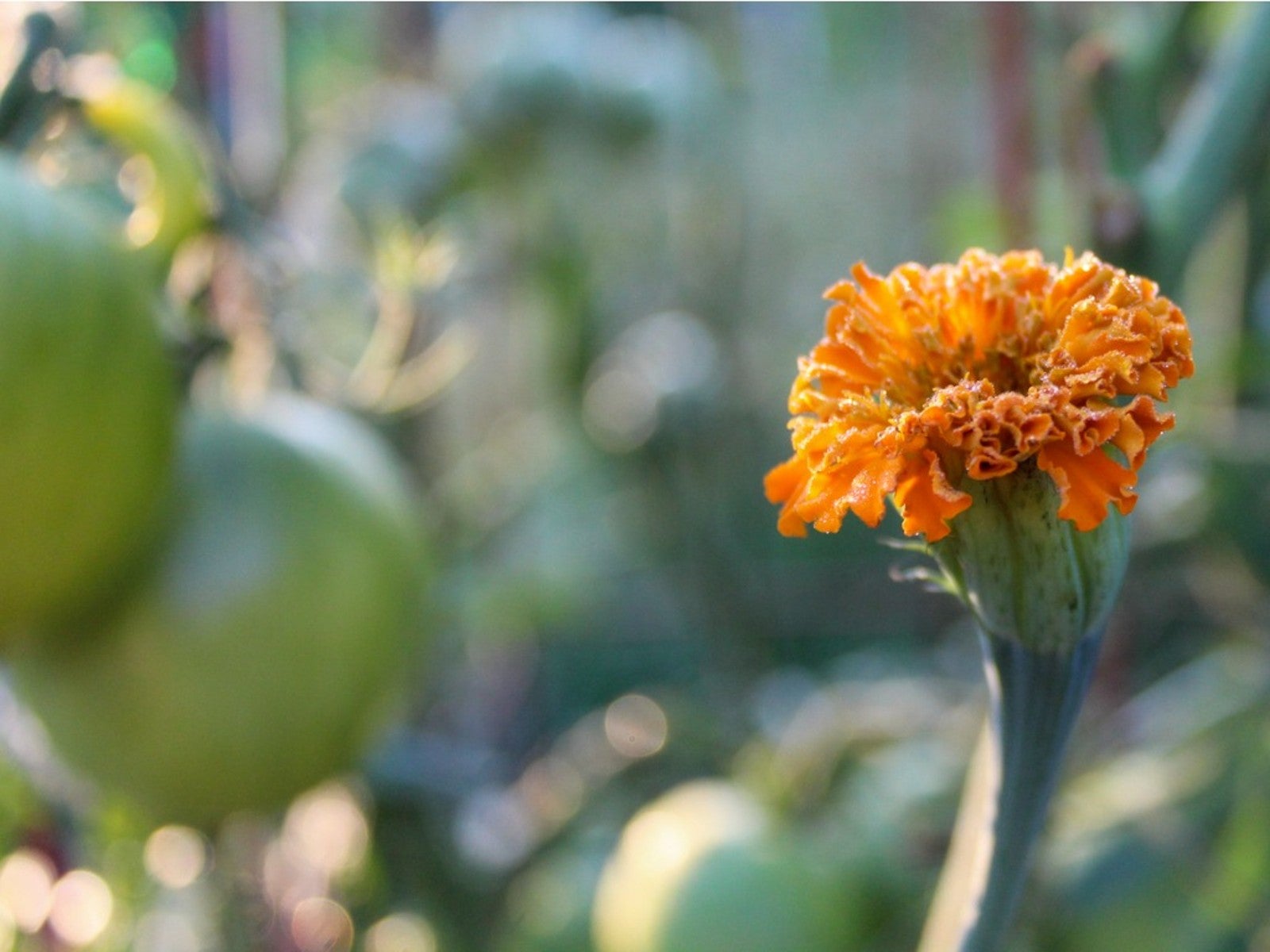 Marigold And Tomato Companion Planting: Do Marigolds And Tomatoes Grow Well Together
Marigold And Tomato Companion Planting: Do Marigolds And Tomatoes Grow Well TogetherMarigolds are appreciated for much more than their beauty; marigold and tomato companion planting is a tried and true technique used by gardeners for hundreds of years. What are the benefits of growing these together? Click here to find out.
By Mary H. Dyer